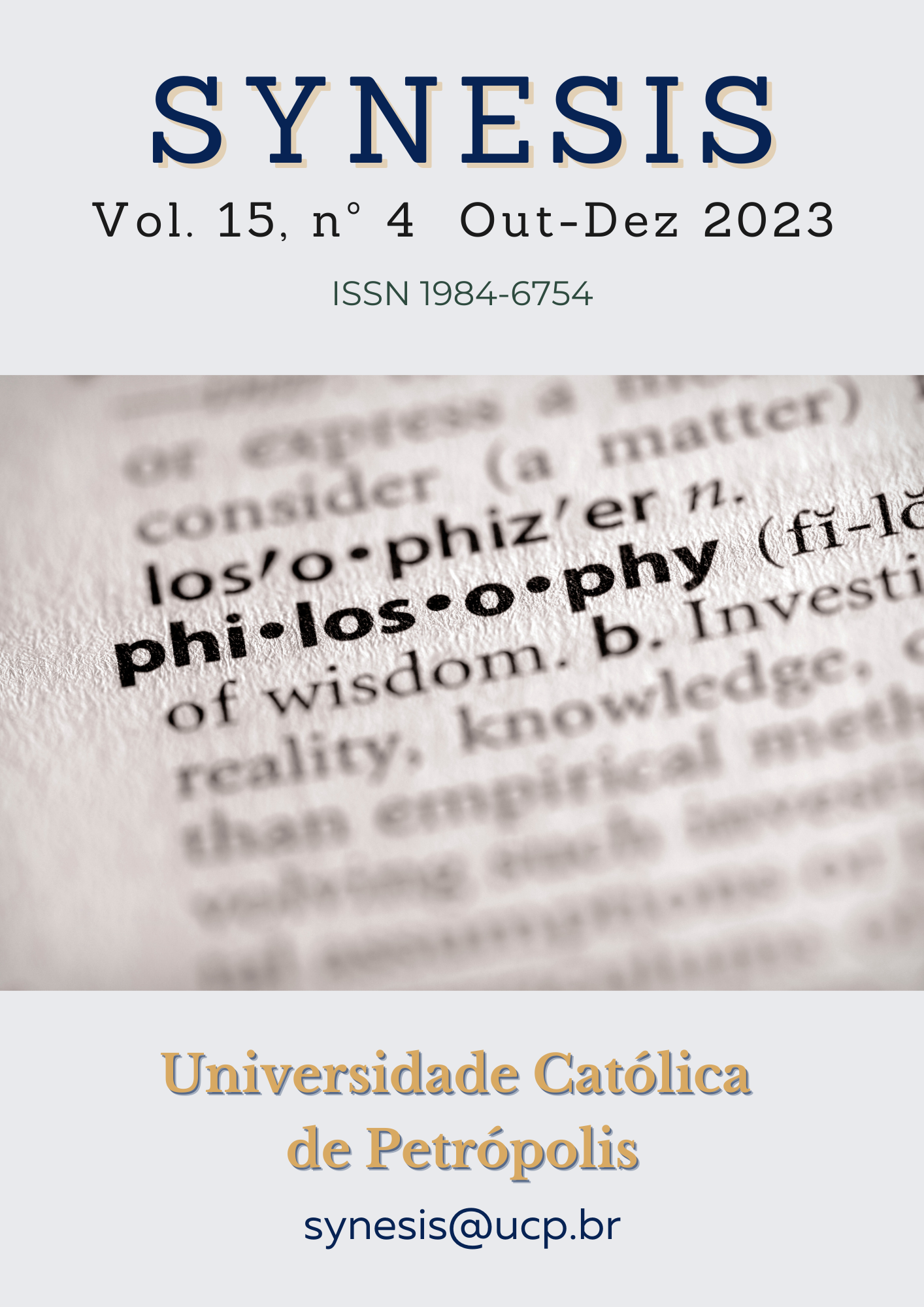Abstract
The article explores epistemic injustice and epistemic virtues in the context of the digitalization of the modern world. Digitalization creates an epistemic space overwhelmed by information, which has the characteristic of hermeneutic excess. Hermeneutical excess is the opposite pole of hermeneutical injustice, which is characterized not by gaps in hermeneutic resources, but by their excess. Based on this, it can be concluded that digitalization is a source of hermeneutical injustice. It is argued that an adequate epistemic strategy in an overwhelmed information environment should assume that the agent has a special intellectual virtue. It is concluded that it is possible to overcome the injustice of hermeneutical excess if the agent cultivates the intellectual virtue of epistemic progress associated with a moderate manifestation of intellectual pleasure.
References
Abakedi, D. E.; Iwuagwu, E. K.; Egbai, M. J. Hermeneutical injustice and outsourced domestic girl-child labour. Childhood and Philosophy, v. 16, n. 36, p. 1-24, 2020.
Aristotle. Nicomachean Ethics. Translated by A. Beresford. New York: Penguin Classics, 2020.
Brodsky, J. Nobel Lecture [Electronic resource]. December 8, 1987. Available at: https://www.nobelprize.org/prizes/literature/1987/brodsky/lecture/
Churcher, M. Rethinking the abortion issue: The problem of normative femininity and hermeneutical injustice. Emergent Australasian Philosophers, v. 4, n. 1, p. 1-13, 2011.
Code, L. Epistemic Responsibility. Hanover: University Press of New England, 1987.
Crerar, C. Taboo, hermeneutical injustice, and expressively free environments. Episteme, v. 13, n. 2, p. 195-207, 2016. http://dx.doi.org/10.1017/epi.2015.35
Dular, N. One too many: Hermeneutical excess as hermeneutical injustice. Hypatia, 2023. http://dx.doi.org/10.1017/hyp.2023.20
Elliott, D.; Spence, E. H. Ethics for a Digital Era. Hoboken: Wiley/Blackwell, 2017.
Falbo, A. Hermeneutical injustice: Distortion and conceptual aptness. Hypatia, v. 37, n. 2, p. 343-363, 2022.
Fricker, M. Epistemic Injustice: Power and the Ethics of Knowing. New York: Oxford University Press, 2007.
Heersmink, R. A virtue epistemology of the Internet: Search engines, intellectual virtues and education. Social Epistemology, v. 32, n. 1, p. 1-12, 2018.
Kwong, J. M. C. Epistemic injustice and open‐mindedness. Hypatia, v. 30, n. 2, p. 337-351, 2015.
Lynch, M. P. Internet of Us: Knowing More and Understanding Less in the Age of Big Data. New York: WW Norton, 2016.
MacIntyre, A. After Virtue: A Study in Moral Theory. 3rd ed. Notre Dame: University of Notre Dame Press, 2007.
Miller, B.; Record, I. Justified belief in a digital age: On the epistemic implications of secret Internet technologies. Episteme, v. 10, n. 2, p. 117-134, 2013.
Nguyen, C. T. Echo chambers and epistemic bubbles. Episteme, v. 17, n. 2, p. 141-161, 2020.
Noble, S. U. Algorithms of Oppression. New York: New York University Press, 2018.
Podosky, P.-M. Hermeneutical injustice and animal ethics: Can nonhuman animals suffer from hermeneutical injustice? Journal of Animal Ethics, v. 8, n. 2, p. 216-228, 2018.
Pritchard, D. Anti-luck epistemology. Synthese, v. 158, n. 3, p. 277-297, 2007.
Smart, P.; Heersmink, R.; Clowes, R. The cognitive ecology of the Internet. In: Cowley, S.; Vallée-Tourangeau, F. Cognition Beyond the Brain: Computation, Interactivity and Human Artifice. 2nd ed. Cham: Springer, 2017. p. 251-282.
Sosa, E. A Virtue Epistemology: Apt Belief and Reflective Knowledge. Vol. I. Oxford: Oxford University Press, 2007.
Wanderer, J. Addressing testimonial injustice: Being ignored and being rejected. Philosophical Quarterly, v. 62, n. 246, p. 148-169, 2012.
Whitcomb, D. Wisdom. In: Bernecker, S.; Pritchard, D. Routledge Companion to Epistemology. New York: Routledge, 2010.
Zagzebski, L. T. Epistemic Values: Collected Papers in Epistemology. New York: Oup Usa, 2020.

This work is licensed under a Creative Commons Attribution-NonCommercial-NoDerivatives 4.0 International License.
Copyright (c) 2023 Synesis (ISSN 1984-6754)

